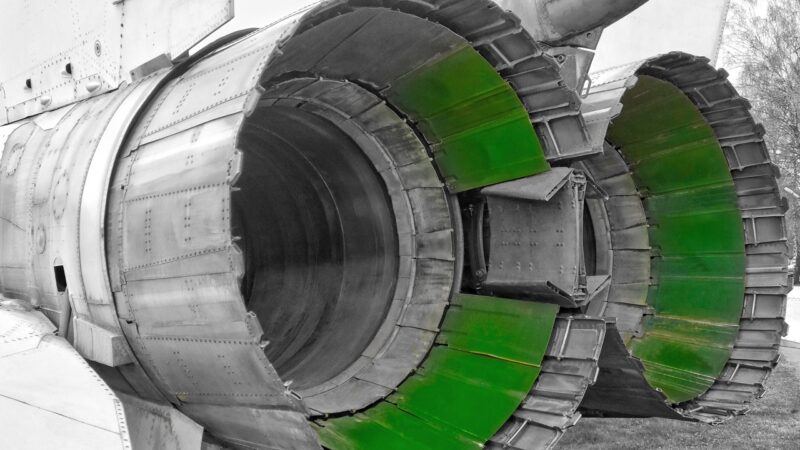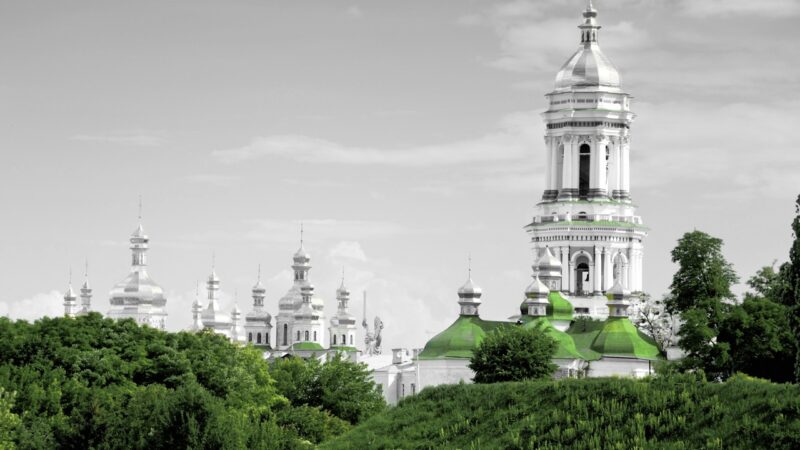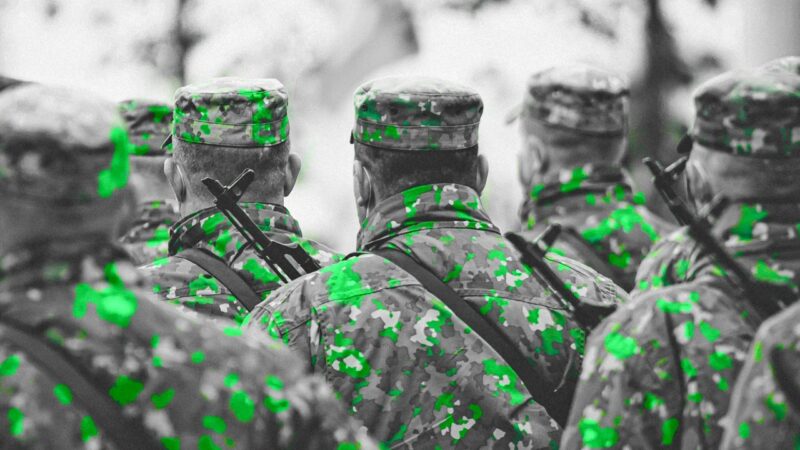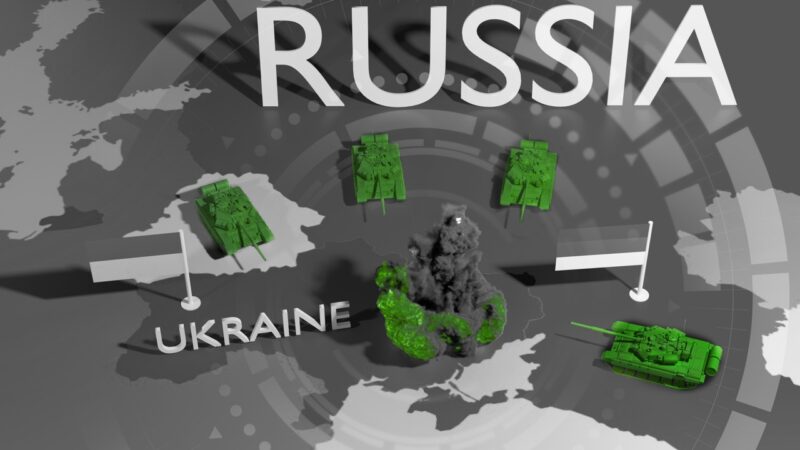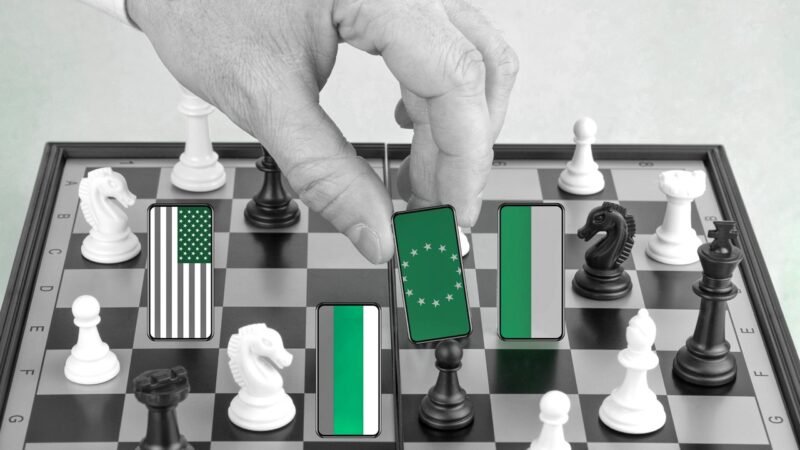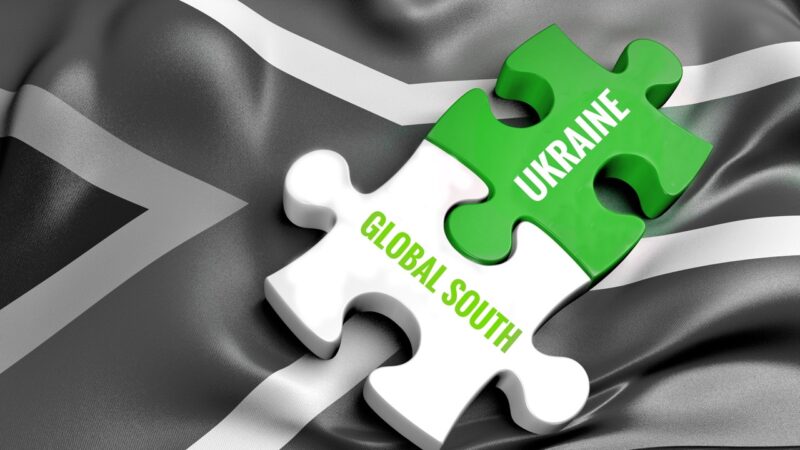Ukraine in search of a magician: From protests to the victory of populism
The party of President Volodymyr Zelensky, “Servant of the People,”[i] has won an absolute majority in the Ukrainian parliament, the Verkhovna Rada (Supreme Council). None of the other parties in Ukraine obtained more than 40% of the candidates on their party lists, or as many winners in the single-mandate constituencies. This is a significant concentration of power, which has not yet been seen in the history of independent Ukraine. Yet it is unclear who will really hold the reins of power.
The Zelensky team will not have to contend with a strong, united opposition, either in or outside of it. Thus, Zelensky is on his way to an unimpeded consolidation of power in Ukraine. This allows for serious changes, on the one hand, but also creates additional risks for the country, on the other. The usurpation of power and the reduction of democratic freedoms are extremely risky in the context of Ukraine’s underdeveloped independent democratic institutions, which have no established system of checks and balances. The only deterrent is the “voice of the street” (aka the maidan), but in this case it is potentially a scenario of even more chaos, along with the ultimate destruction of Ukraine’s hard-won state institutions.
In my opinion, one of the biggest problems is the opaque decision-making process—when it is unclear who influences policymaking, and most decisions, including appointments of high officials, are closed to the public. At least, after three months of work of the new president, this already appears to have manifested itself as his modus operandi. And the return to Ukrainian politics of such odious characters as Victor Medvedchuk and Andrii Portnov do not increase transparency in the least.
On the other hand, Zelensky’s team received an unprecedented carte blanche for conducting reforms and changing the oligarchic system. The question is whether they will have enough will and ability to use this chance to change the country, and not for their own enrichment.
As I wrote after the presidential election in Ukraine this past spring, the victory of Volodymyr Zelensky essentially represented a collective protest against the entire era of post-Soviet politics in Ukraine. Yes, the same elections again: Ukrainians voting out the old system. This is the classical victory of populism, where “we/us” the people vote against “them”—the authorities or, in this case, the “old politicians.”
Thus, those who voted for Zelensky and the “Servant of the People” party see it as an opportunity to remove the “old politicians” from government, who are hindering change in the country. Therefore, it could be said that this is a continuation of the electoral revolution personified by Zelensky, but it is a continuation of the protest processes that began five years ago as the Euromaidan Revolution, only now it’s in the form of sabotage.
One of the conclusions we can make concerning both the presidential and parliamentary elections is that they are an attempt to say goodbye to the politicians of post-Soviet Ukraine. No, they will not disappear immediately, but the relevance of their agenda, their political programs, and their methods fits neither the timing challenges nor the expectations of different groups of Ukrainian society.
Ukrainian politics long ago turned into a show “for the people” and decision making behind closed doors “for themselves.” The irony is that people who played for years at imitation politics (with backroom agreements and “limited access orders,” using the terminology of Douglass North) were themselves ousted by a party that won based solely on the popularity of Volodymyr Zelensky, who, in turn, owed his popularity to a TV series.
The time for post-Soviet politicians in Ukraine is passing away. They have simply ceased to be relevant because they cannot meet present-day challenges, are incapable of walking away from the usual deeply corrupt system of governance, and are simply not interesting to the younger generation of voters, which has gradually begun to politicize.
In many “single-mandate” (single-member) constituencies, some “heavyweight” big businessmen—who sat for years in the Verkhovna Rada and confidently assumed they “owned” these districts—lost to little-known candidates who were supported by the “Servant of the People” party.
The “Zelensky” brand united both those who saw him as an instrument to destroy the old system and those who simply do not accept Ukrainian politics in its traditional form anymore. Not surprisingly, a significant part of Zelensky’s voters are young people. And they are different in their ideological preferences, vision of the country’s future, etc.
Let us examine a few more features of these elections. The turnout was the lowest in the history of parliamentary elections in Ukraine, which also testifies to the disappointment of the majority of the population in Ukrainian politics.
These elections, like the presidential election, destroy the traditional electoral differences between Ukraine’s regions. One could say that the “Servant of the People” united the eastern and western parts of the country in protest against the existing political elites. As for the so-called “pro-Russian” forces, although they gained second place, their support was confined to the Donetsk and Luhansk regions.
The role of Russia
It is clear that the Kremlin took into account its previous experience that supporting certain political forces or attempting direct influence of the elections in Ukraine only harms the pro-Russian candidates. Therefore, open interference in the electoral process is not beneficial. And what for, if you can use the old tactic of creating chaos by pulling the strings of your puppets. Moreover, the purchase of several TV channels by V. Medvedchuk will cost much less, and the impact on the consciousness of the population will be much larger. In addition, the inexperience of Zelensky’s new team will inevitably lead to various kinds of crises that can be exploited to exert more pressure on Ukraine.
The politics of emotions
Ukrainian voters have never been particularly characterized by rationality in their electoral behaviour. One of the main themes that led to the Revolution of Dignity was the issue of injustice. Poroshenko’s support (after the 54% he received in the 2014 elections) inevitably had to fall, as society was overwhelmed by expectations. But this disappointment was really catastrophic precisely because the demand for justice was not fulfilled even to the smallest extent. And the feeling of betrayal– could not be removed by any rational arguments about economic progress, confrontation with Russia, etc. Similarly, the support for Zelensky is bound to go down very quickly, because he will not be able to satisfy the expectations of such different groups of the population. All the more so that these are expectations (on the part of a still very paternalistic Ukrainian electorate) of a magician who will change everything without requiring changes from the voters themselves.
According to sociological surveys at the end of 2018, most Ukrainians believed that events in Ukraine are developing in the wrong direction (70%, compared to 58% in 2014, 68% in 2015, 67% in 2016, and 74% in 2017), 18% were sure the course of the country’s development is correct (22% in 2014, 15% in 2015, 16% in 2016, and 14% in 2017), and 12% were undecided (20% in 2014, 17% in 2015, 17% in 2016, and 12% in 2017).
The triumph of populism around the world reminds us that irrational factors often play a more important role than rational ones—especially in situations of uncertainty, social trauma, and so on.
Practically everyone who supports populists in different countries has one feature in common: the desire for stability or a return of the “golden past” and simultaneously to break the established rules of the game. In fact, this desire to “simplify” the world unites very different groups of people. Ukraine is not unique in these processes. Although it may become a great example of “postmodern” politics.
It is these kinds of expectations all populists play with, regardless of party colours. And this situation overlays a crisis of the elites, who are unable to cope with existing challenges and contradictions yet at the same time are not ready to give up even a part of their privileges and advantages.
The majority of Ukrainians feels fear and uncertainty about the future, and they have no expectations of prosperity or improvement of life. The vast majority of Ukrainians in 2018 assessed life in the country either as difficult (36%) or unbearable (46%), and such a predominance of negative assessments has been unchanged for several years. Moreover, only 17% of respondents expected some improvement over the next year, while 52% were convinced that there would be no improvement. Among the population remains a disbelief in their ability to influence the actions of the authorities. In particular, 54% of the respondents noted that they could not do anything in case of violation of their rights by the Ukrainian government, about 31% were undecided, and only 15% said that the possibility exists to appropriately influence the government. However, it can be noted that since 2012 there has been a gradual reduction of the proportion of negative responses and a slight increase of positive ones.
The problem of trust is especially relevant for the post-Soviet societies. This is a question not only about trust between people but also about the lack of trust in social and political institutions. But there can be no cooperation or mutual assistance without trust, which is a prerequisite for changing the system and sustainable development of society. And societies that are capable of doing this achieve much greater success than those in which everything is built on competition and a war of “all against all.”
In Ukraine there is a general and widespread perception of politics as cynical and false, as well as an extremely low level of trust in almost all social institutions. Citizens of Ukraine express distrust of state institutions (83%), Russian media (83%), Verkhovna Rada of Ukraine (82%), the judicial system (78%), political parties (77%), Government of Ukraine (75%), President of Ukraine (71%), Prosecutor’s Office (70%), National Bank of Ukraine (68%), Constitutional Court (62%), and trade unions (58%). The only trusted organizations are volunteer agencies (67%), the Army of Ukraine (62%), the Church (61%), and volunteer battalions (57%).
However, it is impossible to build a healthy society without a certain level of mutual trust, of tolerance to the positions of others, and of solidarity. The need for healthy social relations based on good will and shared values is still very relevant for Ukrainian society.
The Russian philosopher Mikhail Bakhtin saw carnival as a special culture that turns the official social hierarchy upside-down and restores the mythical golden age of universal equality. But the main thing is when does the carnival become paramount, and why? Perhaps because in the perception of the majority of the population of Ukraine, all Ukrainian politics are politics of imitation and dishonesty. The need for carnival arises when officialdom or formal politics completely cease to correspond to reality and to the actions of politicians—when the greatest patriots are revealed to be the most cynical thieves, and when everyone understands that the politicians are lying but the institutions that are supposed show them up, such as the media or pundits, are themselves engaged in propagating falsehoods.
Res-publica or Cosa nostra?
What principles for Ukraine’s existence will win—a “common interest” or “vested interest”? Will politics be transformed into a forum for harmonizing public interests, or will it remain a way to satisfy the private appetites of a narrow circle of elites who’ve gained access to power? This is probably the key issue to which Ukrainian society will have to respond, writing a new social contract.
Ukrainian politics, based on the dominance of private interests over public ones, cannot continue to exist in its present form. There are many reasons for this, from changes in technology, generational issues, inadequacy of the archaic political system in Ukraine, ineffectiveness of the Ukrainian economy, etc., to the geopolitical factors and pressure of Russia, which will not be going anywhere in the near future.
In fact, the biggest split, the main contradictions that have developed in post-Soviet Ukraine, is the gap between the Ukrainian society and the elites—or, rather, the consolidated political class (despite all the internal differences in identity issues, geopolitical choices, languages, etc.). I deliberately use the Marxist term class, because it most precisely defines this basic division of Ukrainian society. In all its internal conflicts, the Ukrainian political elites—including the judicial-law-enforcement system, the bureaucracy, politicians who receive corrupt rents, and the groups that serve them—form a consolidated class. And most importantly, it is the only existing class in Ukraine. And only this class is distinguished by the internal unity of its interests and their consolidated protection. Regardless of changing governments and despite ideological differences on some issues, this class automatically protects itself from any encroachment upon its system (in the form of power rents) or established means of exercising its power.
This exists at all levels, from the oligarchic consensus—to the silent but effective resistance to serious reforms (above all, judicial, anti-corruption, etc.) by the middle bureaucracy level, to the tolerance of corruption by the population. Therefore, any fight against corruption as an independent phenomenon is doomed to failure, because corruption is both the result and the way of existence of the whole system.
In general, Poroshenko fulfilled his purpose in 2014, preserving and stabilizing the country but also restoring the oligarchic consensus and the extant system. Of course, it was done with certain limitations, under the pressure of civil society and “Western partners.” But in effect he did not fulfill the expectations of the most active part of Ukrainian society that desired radical change of the system and the rules of the game. Unfortunately, even in post-Euromaidan Ukraine there has not been a consolidated political force that could work on the realization of these tasks. Therefore, to a certain extent the Zelensky phenomenon became possible because Ukrainian civil society did not form a serious new political force.
On the other hand, the demand for “stability” and “normalization” also existed for a significant part of the population. Therefore, most voters voted for populist slogans and for the virtual “Servant of the People” whom they knew from the TV. At the same time, the inadequacy of such a patrimonial oligarchic system and model of political governance leads to constant crises and conflicts. Constant political crises in Ukraine cannot be avoided unless this fundamental conflict changes between the political class and society, since the political class, despite its different positions and internal competition, supports the consensus of “postmodern neo-feudalism” paradigm, which combines post-Soviet statism and restoration of the ”limited access order.”
[i] The name is identical to that of a recent television series starring Zelensky, in which he played a teacher who is unexpectedly catapulted into the position of President of Ukraine.
Oleksii PolegkyiCIUS,
University of Alberta
